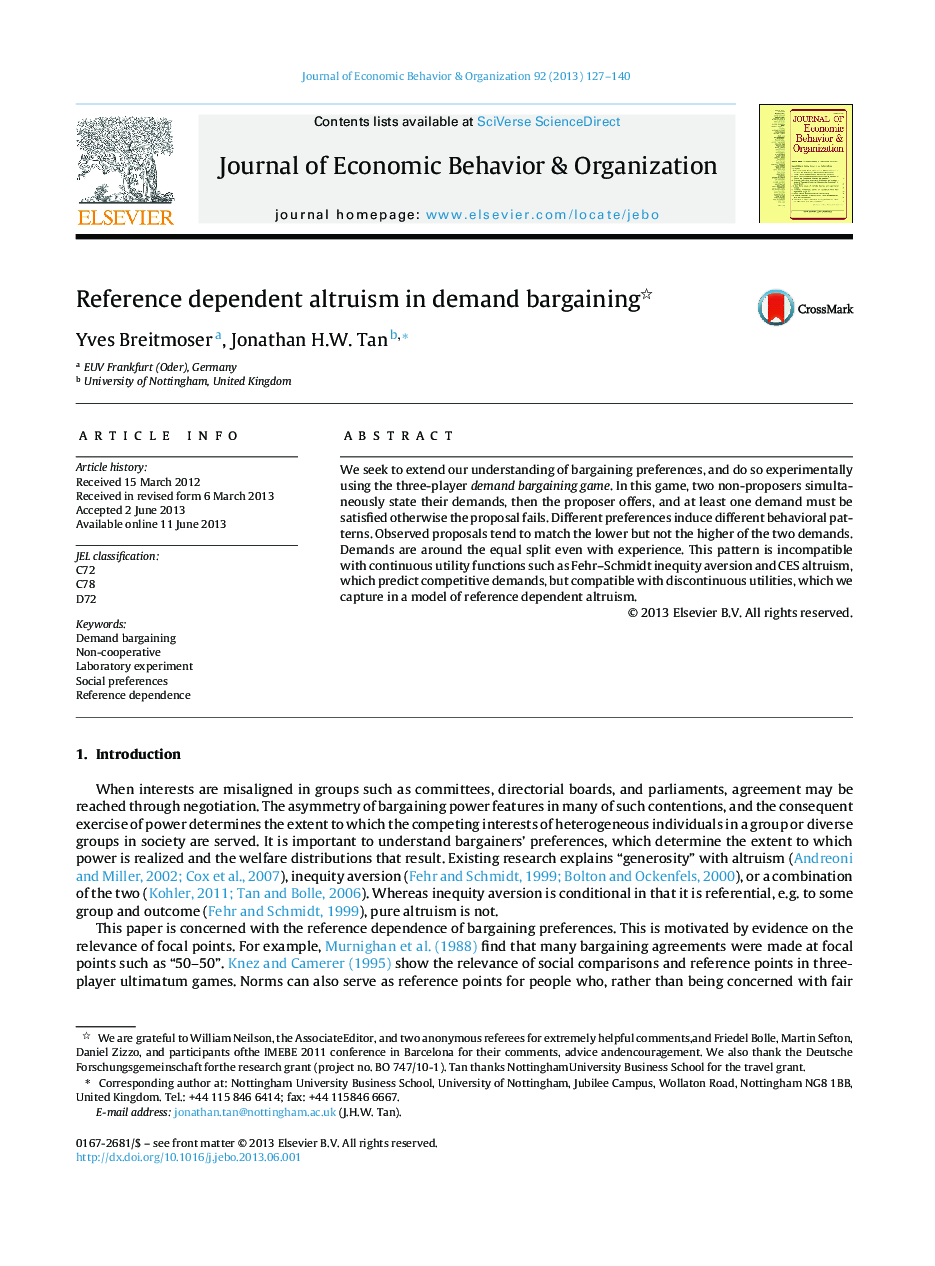| Article ID | Journal | Published Year | Pages | File Type |
|---|---|---|---|---|
| 7243780 | Journal of Economic Behavior & Organization | 2013 | 14 Pages |
Abstract
We seek to extend our understanding of bargaining preferences, and do so experimentally using the three-player demand bargaining game. In this game, two non-proposers simultaneously state their demands, then the proposer offers, and at least one demand must be satisfied otherwise the proposal fails. Different preferences induce different behavioral patterns. Observed proposals tend to match the lower but not the higher of the two demands. Demands are around the equal split even with experience. This pattern is incompatible with continuous utility functions such as Fehr-Schmidt inequity aversion and CES altruism, which predict competitive demands, but compatible with discontinuous utilities, which we capture in a model of reference dependent altruism.
Related Topics
Social Sciences and Humanities
Economics, Econometrics and Finance
Economics and Econometrics
Authors
Yves Breitmoser, Jonathan H.W. Tan,
